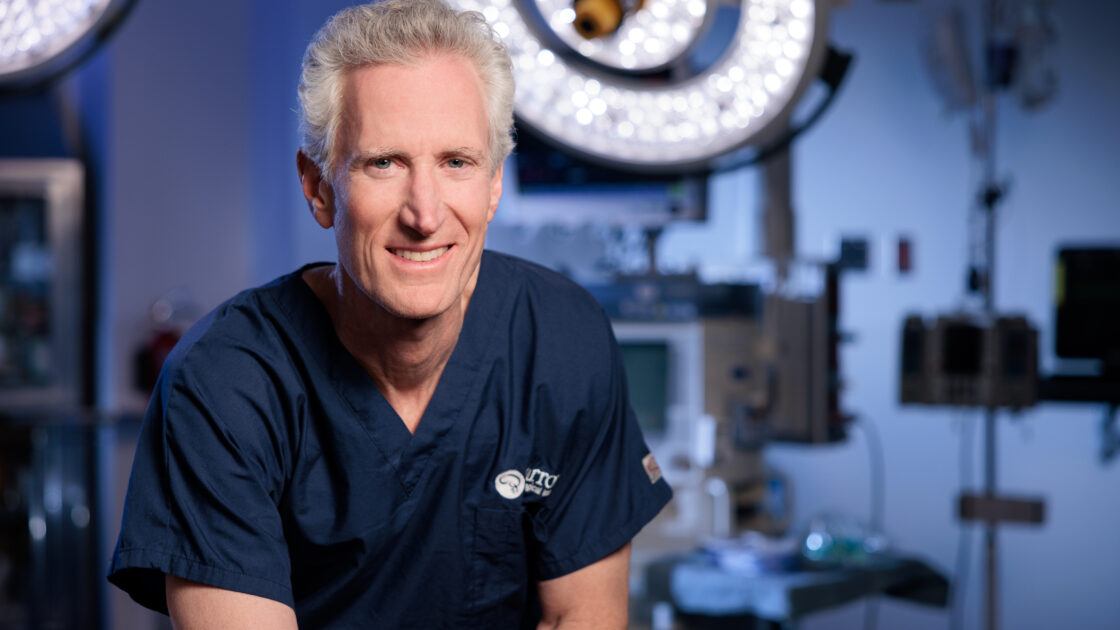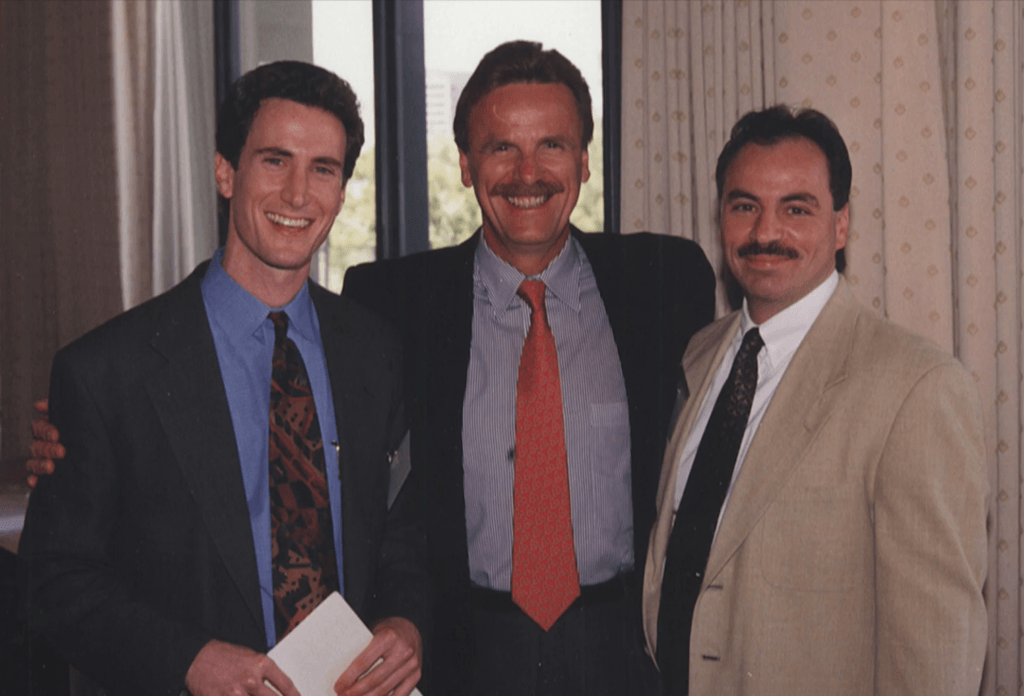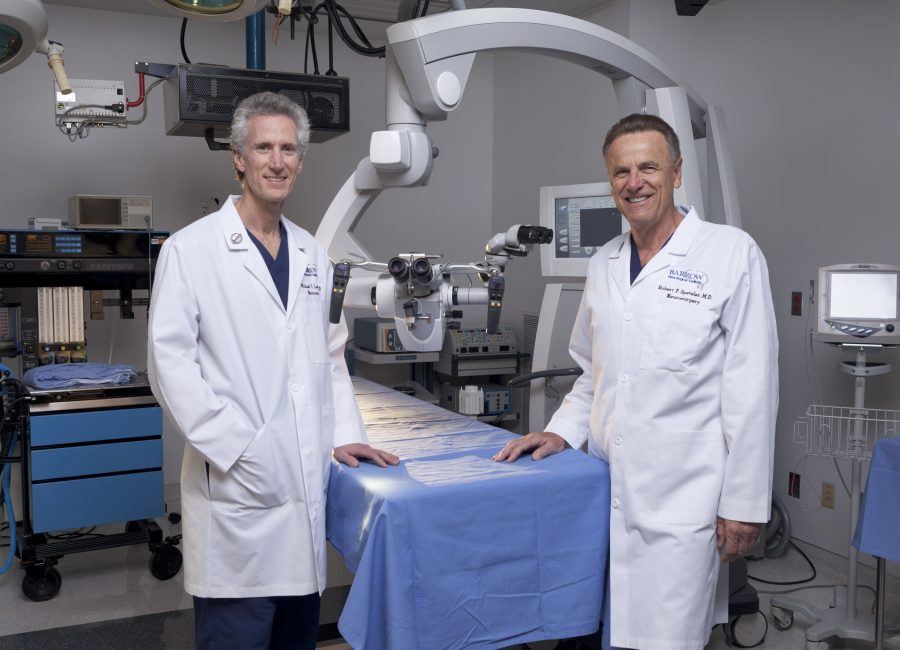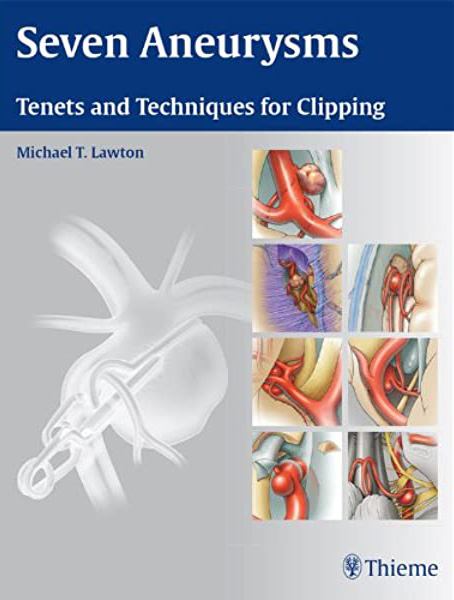
Dr. Michael T. Lawton to Receive Cushing Award for Technical Excellence, Innovation
The American Association of Neurological Surgeons (AANS) has selected Michael T. Lawton, MD, as the recipient of this year’s Cushing Award for Technical Excellence and Innovation in Neurosurgery. Dr. Lawton, President and CEO of Barrow Neurological Institute, will receive the award on April 22 at the AANS Annual Scientific Meeting in Los Angeles.
AANS, one of the largest and most prestigious societies in neurosurgery, established the Cushing Award 10 years ago. The neurosurgery equivalent of an Oscar or Emmy, the award honors members who demonstrate prowess in the operating room and who advance the field of neurosurgery through pioneering ideas.
“When I think about what I do and who I am, the two things I value most are technical excellence and creativity,” Dr. Lawton said. “So to receive an award that embodies both of those values is very meaningful to me.”
Pushing the Envelope
Dr. Lawton has reached milestones in vascular neurosurgery that few others have matched. He has logged more than 10,000 cases in his career, including 5,200-plus aneurysm cases and more than 1,000 each of arteriovenous and cavernous malformation cases. His bypass procedures, which redirect blood flow around problematic vessels, exceed 800.

Dr. Lawton is driven by an indefatigable passion. With more than 25 years of practice, he still views neurosurgery as thrilling and challenging. He’s also dedicated to preserving the art of open microneurosurgical techniques amidst the rise of endovascular neurosurgery and radiosurgery.
“Open microneurosurgery, and that whole technical aspect of neurosurgery, is under threat,” he said. “We have to push hard to keep that alive, or it’ll become extinct. I feel really committed to that crusade.”
Fueled by this combination of surgical volume and devotion to his craft, Dr. Lawton has blazed trails in the neurovascular subspecialty. He finds bringing something new into the world to be just as rewarding as performing a case well.
“Every generation someone comes along who pushes the envelope just a little further; Dr. Lawton is one of those individuals,” said Howard Riina, MD, a Barrow alumnus who nominated Dr. Lawton for the award. Dr. Riina now serves as the Lucius N. Littauer Professor and Vice Chair of Clinical Affairs in the Department of Neurosurgery at New York University.
“Firmly grounded in neuroanatomy and displaying an unsurpassed technical virtuosity, Dr. Lawton has defined what it means to be an open cerebrovascular neurosurgeon for the next generation,” Dr. Riina continued.
Dr. Lawton’s proficiency in neuroanatomy is evident throughout his academic contributions. These include defining anatomical triangles in the skull base, which help to guide neurosurgeons through this complex region. He’s also played a role in developing new surgical approaches, fourth-generation bypasses, and a concise and practical “code” to describe bypass surgeries. Additionally, Dr. Lawton has modernized the microneurosurgical instrument kit with his LawtonElite disposable microscissors, bipolar forceps made with copper alloy, a complete bypass set, and refined microdissection instruments.

But before even entering the operating room, a neurosurgeon must weigh the risks and benefits of surgery. To aid in surgical decision-making, and ultimately improve patient outcomes, Dr. Lawton has worked with other neurosurgeons and trainees to propose four different classification systems. These taxonomies categorize bypasses, cavernous malformations, and tentorial dural arteriovenous fistulas, and these grading systems estimate surgical risks associated with resection of brainstem cavernous malformations and arteriovenous malformations (AVMs). The Lawton-Young supplementary AVM grading scale builds upon the work of Emeritus President and CEO of Barrow, Robert F. Spetzler, MD.
Dr. Spetzler, who similarly specialized in vascular neurosurgery and skull base surgery, earned the Cushing Award in 2021. Dr. Lawton both nominated and introduced Dr. Spetzler as the award recipient at last year’s AANS meeting.
“It was a significant gesture because he trained me, and I felt like he deserved the award more than anybody,” said Dr. Lawton, who underwent residency and fellowship training at Barrow.
Passing the Torch (or the Scalpel)
Like his predecessor, Dr. Lawton takes pride in training the next era of neurosurgeons and continues to build upon Dr. Spetzler’s legacy. He has maintained Dr. Spetzler’s daily afternoon teaching rounds for residents and fellows and has broadcasted them to a global audience through the Barrow Neurosurgery Base Camp web series.
The COVID-19 pandemic, which canceled neurosurgery meetings and paused elective surgeries, served as the catalyst for another education initiative that had been fomenting in Dr. Lawton’s mind for years. He launched Seven Series, previously known as Covideos-19, a narrated video case series released twice weekly.
“I needed that little push to actually take the leap,” Dr. Lawton said. “It takes a lot of discipline and resources to produce all of those videos. It also takes a certain amount of courage to put yourself out there and show your work.”
Dr. Lawton believes every case provides a learning opportunity, and the Seven Series does just that: it allows Dr. Lawton to capture the notable elements of each case and extract pearls of wisdom. He considers the Seven Series akin to a “virtual residency.”
“Anyone who wants to essentially ‘scrub in’ to a case at Barrow can do that just by logging on to social media or our website,” he said. “It takes us from a local residency of 28 to a global residency of thousands.”
Dr. Lawton also values documenting his cases for posterity. This same belief served as the motivation behind his “Seven Aneurysms” textbook. In an era of multi-author textbooks, Dr. Lawton successfully embarked on the ambitious journey of solo-authoring all 228 pages. He continued that momentum with two additional—and even larger—solo textbooks: “Seven AVMs” and “Seven Bypasses.” The “Seven” trilogy will soon become a tetralogy, with “Seven Cavernomas” nearing publication.
“His seminal books have become a must on every neurosurgeon’s bookshelf,” Dr. Spetzler said. “They have set a new bar of excellence in teaching others the surgical steps with the appropriate nuances, which improves patient care around the world. I take great pride in congratulating Dr. Lawton on this well-deserved honor and his unwavering commitment to improve surgical care at Barrow through his books and presentations around the globe.”
The Next Seven Years
The Cushing Award is the highest recognition in Dr. Lawton’s career so far. When asked what he hopes to accomplish during the remainder of his career, he admits he’s not quite sure.
“Somebody once said you have to reinvent yourself every seven years, and I’ve taken that to heart,” he said. “During the first seven years, I was climbing my personal learning curve. In the next seven, I was becoming one of the key authorities in my subspecialty. In this phase now, I am leading Barrow and trying to figure out how to take one of the world’s premier neurosurgical and neurological institutes to even greater heights.”


